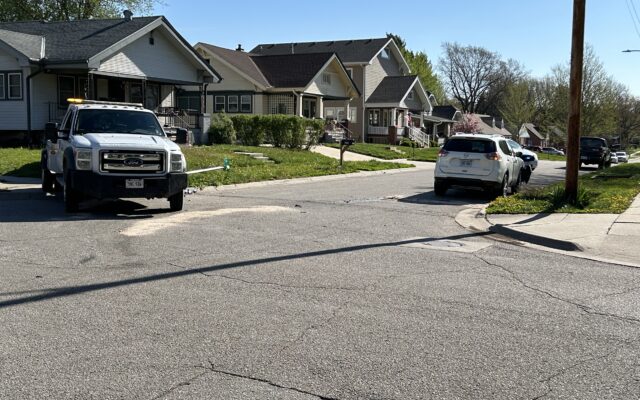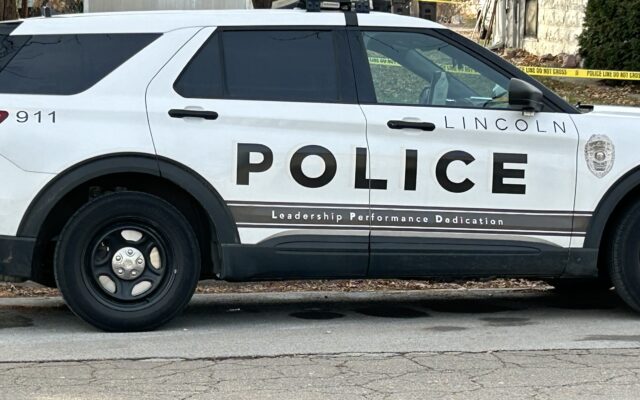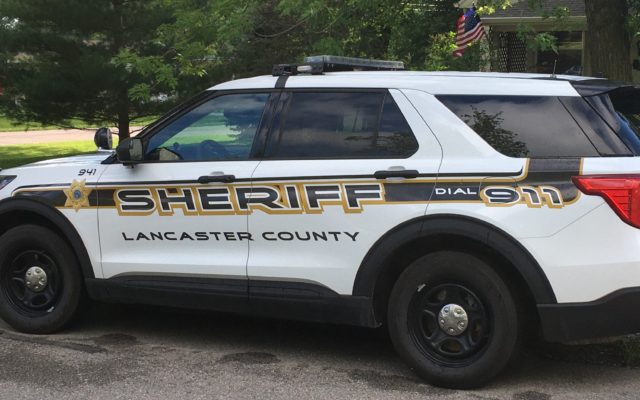Lincoln Library Director “Getting To Know Everyone”

Lincoln, NE (March 27, 2023) “Getting to know our people” is how Ryan Wieber describes the process he has been following for finding his way around and getting to know Lincoln’s Public Library system. Mayor Leirion Gaylor Baird named Wieber Lincoln City Libraries Director last October 21. Before moving here, Wieber was Director of the Kalamazoo, Michigan Libraries.
“You want to know who you work with, and I’ve had a lot of conversations with staff at all levels, our stakeholders and our Board”, he said. “I’ve had a lot of folks do a nice job of introducing me to not only our Libraries but our neighborhoods and what’s important to them as far as library services.”
He has been adapting to a different type of system in Lincoln. In Michigan, he managed a District system. “We were our own local unit of Government. We had the ability to establish and levy a tax and collect that.” Here in Lincoln, as a City Department, the Public Libraries are included in the overall City Budget.
As he has gotten used to the new system, Wieber says there are advantages to being a City department.
“We have a lot of support from City Government and from other departments. There’s an understanding of the importance of Libraries from within the City. There’s a nice understanding of that among our citizens too.”
Wieber said support for Libraries from the Public is high among Lincoln residents. He singled out the annual “One Book One Lincoln” program and the volunteer committee that operates it as examples.
“I’ve been impressed by the seriousness and dedication of the committee. It’s only a couple of staff and the rest are committee members. They realize the importance of making the right choice on behalf of the City to put out there a high quality read that will attract a popular audience.”
Wieber is still forming his idea of new programs and services that might be offered in the future.
“We have dabbled a bit in what we call the ‘Library of Things'”, which he described as “a non-traditional collection of items for checkout.”
“Some libraries will have a collection of tools or cooking utensils such as pots, pans and baking wear” he said. “We don’t have that, but we have musical instruments such as ukeleles and guitars, and they are wildly popular.”
He added that “what makes a collection special is when we include programming with it.” He cited the Polley Music Library, a collection of rare items such as sheet music, books and recordings as an example.
Whatever improvements or new programs are ahead, he said his question is “how can we improve on things we already do, and make sure that people understand the importance of the Library in their community.”
Wieber agreed that Lincoln’s Libraries are facing several long term decisions, beginning with whether to build a new downtown branch.
“Without a doubt, there has to be a Library downtown” he said. “It’s just a matter of how to replace it and how to communicate that need to residents. There is a population of 50-60 thousand within a two mile radius of downtown, and certainly the folks living downtown, that’s a growing population too.”
Asked to clarify his preference, Wieber said he is in favor of replacing Bennett Martin Library.
“I think the cost to renovate and figure out what to do with our current 1962 building would be not cost-effective. That’s based on sound study for the past ten years or so.”
As to the location for the new downtown branch, Wieber supports the much discussed Pershing block as the best choice.
“It’s a perfect spot in a perfect location for a Public Library in a Capital City.”
Wieber said he’s confident the community will choose the Pershing location and build the new downtown library there within the next decade.
Another item under discussion is the nationwide drive among concerned citizens to remove books considered unfit for children. The Nebraska Legislature is currently considering L.B. 441, a bill that would make it possible to prosecute librarians, teachers and others who provide obscene materials to minors.
Wieber said he is not taking a position on the bill officially.
“Unofficially, it’s a bad bill. Librarians and Libraries do not distribute obscenity. We’re first and foremost there to provide a wide variety of materials. To make things accessible. To criminalize what we have been historically charged to do, by the public, and the mission and vision of Public Libraries, is wrong.”
Lincoln’s Libraries have a process, he said, that allows anyone to ask that a book on the shelves undergo a reconsideration. After an internal review by staff, the Director makes a decision on retaining or moving it to another location. If not satisfied, the patron can appeal to the Library Board.
The review system has been used twice this year, he said, including one current review that is underway and one a month ago. “Over the past five years, I would say there have been maybe four or five instances where there has been a request for reconsideration.”
As far as the selection process for new materials, Wieber said it’s always a challenge.
“Not everything we have in the Library is going to be favorable to all” he said. “It’s our challenge and our goal to always place materials in the right location. The first challenge is to make sure it’s appropriately placed, whether it be in the adult collection or the children’s collection.”
Asked whether the passage of L.B.441 would lead to a large trash collection from Lincoln’s Public Libraries, he said “absolutely not.”
Wieber said the biggest ongoing challenge for Libraries is to let the public know about all they have to offer, including books, programs and services.
“We have great Libraries. If you haven’t visited recently, please do so.”






